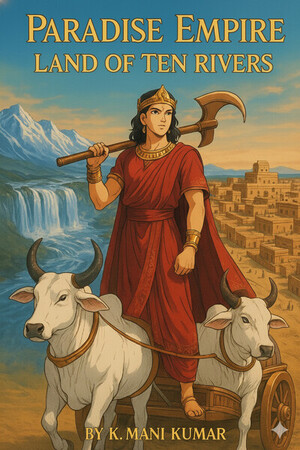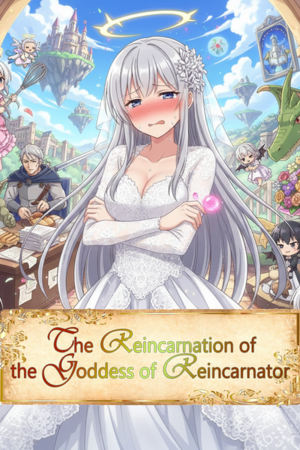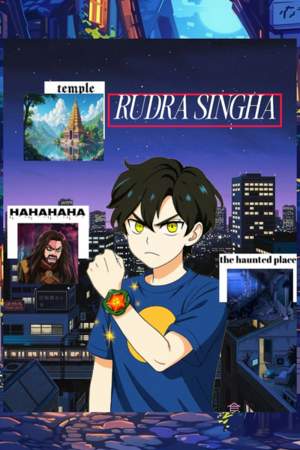Chapter 3:
Chapter 2: That One Decision — Part 1
The Paradise Empire: The Land of Ten Rivers season 1 part 1
Chapter 2: That One Decision — Part 1
[Setting: The same ancient banyan tree. The wooden bench. The old fire has dimmed, only a few embers flicker.
Boy: “Grandpa… I still can’t believe it. The great Vīra — the hero who changed our entire world — he was from our own village? He once walked on this same ground?”
The old man’s eyes shone with pride and melancholy. The wind caught his white hair as he gazed far into the horizon, where the sun melted into a river of gold. His voice carried the tone of memory — part pride, part sorrow.
Grandfather (voiceover): “Yes, my boy… It is true. And this… this is how it all began — with one decision.”
His voice deepened, echoing like the start of an epic recitation.
“One decision can change the fate of a man, a family… or an entire empire. If it is made in wisdom, it brings happiness and prosperity. But if taken in anger or pride… it can destroy everything — a man’s life, a family’s honor, and an empire’s very independence.”
“Whether Vīra’s choice was right or wrong… no one truly knows. But that one decision changed the destiny of our civilization forever.”
The world blurred, fading from the golden fields of the present to the vivid, vibrant past — when Maniyanūru was not just one among the crowned cities but a bustling trade center between the Ten Rivers.---
Ancient Manūrū — Harvest Festival MonthVenkatayya: “Rangayya, these goods must reach the trade city before the festival moon. The merchants there will pay thrice the worth if we deliver on time. You are responsible for this consignment — our family’s pride rests on this journey.”
Rangayya bowed slightly, smiling with confidence.
Rangayya: “Don’t worry, father. These are fine bronze idols, polished stones, and dyed cloth — the traders of Maniyanūru will fight to buy them. I’ll return with gold enough to fill our storerooms.”
Venkatayya nodded approvingly as the carts were loaded — colorful textiles, carved pots, bronze tools, painted masks, and sacred figurines wrapped in palm leaves.
Soon, the bullock cart creaked to motion under the command of Rangayya and his men. The air was filled with laughter and pride — but fate had other plans.
---
The Ambush
Outskirts of ManūrūAs they moved along the forest path, birds took flight from the trees. Rangayya leaned back on the cart, counting aloud.
Rangayya: “Hah! Look at these goods. Easily worth five thousand bronze coins — and maybe fifty gold pieces if we sell them wisely.”
But suddenly, the driver halted the cart.
Rangayya: “Why did you stop? Move forward!”Driver (hesitant): “Of course, my lord… as you wish.”
Yet before he could snap the reins, four shadowy figures emerged from the thick trees.One of them, tall and rough-bearded, moved like a snake. Without warning, the driver kicked Rangayya off the cart, revealing himself as one of the thieves.
The men roared and seized the reins. The bullocks bellowed and charged forward as the cart thundered away, loaded with treasures. Dust rose into the sky like smoke.
Rangayya stumbled to his feet, stunned.
Rangayya: “Thieves! They’ve stolen our goods! After them!”
He and his men began running desperately, shouting. But the thieves’ cart was already distant, vanishing behind a curve of the dirt road.
Then — the sound of another cart.A different rumble, faster, sharper, cutting through the air.
A sleek, chariot-like bullock cart, painted crimson and built for speed, roared down the path. The bulls — two mighty white-humped zebu — gleamed under the sun, their hooves striking sparks off the earth. At its reins stood a young man with a fearless grin and wind-tossed hair — Vīra.
Beside him, holding on for dear life, was his friend Tim’mayya, the source of this very tale.
Rangayya shouted with disbelief.
Rangayya: “There he is again — that reckless fool! Vīra! Catch them! They’ve stolen my father’s goods!”
Vīra grinned, standing up on the racing cart like a warrior on a battlefield.
Vīra: “Got it!”
The chariot stormed forward like lightning. Dust swirled behind them as the bulls pounded through the road. Within moments, Vīra and Tim’mayya overtook the thieves and blocked their path, their chariot skidding sideways as dust filled the air.
The thieves panicked. Four jumped off the cart, clutching bronze knives, while the fifth stayed atop, clutching a wicked bronze scythe.
Thief (snarling): “Who are you, fool?! Get out of the way or die where you stand!”
Vīra tilted his head, smirking.Vīra: “Oh no… a bronze knife? I’m terrified.”
The thief lunged forward. In a blink, Vīra sidestepped, caught his wrist mid-strike, drove an elbow into his ribs, and twisted the arm sharply — the knife clattered to the ground. Then Vīra grabbed the man by the neck and threw him down. The thief hit the dust, groaning in pain.From the chariot, Tim’mayya shouted, eyes wide.
Tim’mayya: “Vīra, be careful! They have more weapons!”Vīra (grinning): “Don’t worry, Tim’ma! I’ve got this. But you should help too!”
Tim’mayya: “What?! They’re armed! I’m not risking my life — this isn’t some village contest!”Vīra: “I don’t care! Let’s go!”
The remaining three thieves rushed in at once. Bronze flashed in the sunlight. Vīra ducked left, slid under a blade, spun around, and slammed his fist into one man’s jaw — a clean, brutal hit. The thief fell.
Another swung a knife, but Vīra caught his arm, twisted, and sent him flying backward. The third tried to tackle him, but Vīra pivoted, grabbed him by the waist, and threw him over his shoulder — a perfect throw, his training from village contests shining through.
The final thief jumped down with his scythe, roaring.Tim’mayya: “Vīra!!! Behind you!”
The scythe came down — Vīra turned, caught the man’s wrist mid-swing, and smashed his forehead into the thief’s. The bronze weapon slipped free as both staggered. Vīra clutched his head.
Vīra (groaning): “Oof… my head!”
Dust settled. The thieves lay defeated.
Just then, Rangayya and his men arrived, breathless.
Rangayya (furious): “Good! You’ve finally done something useful, Vīra. Now let’s punish them — brutally! No one dares rob the chief’s family!”
But Vīra raised his hand.Vīra: “Wait, Rangayya. Let them speak first.”He turned toward the trembling thieves.
Vīra: “These pots, these carvings, these bronze idols… and the clothes woven by our mothers and grandmothers — tell me, why would you steal these? Whose sweat do you think you were robbing?”
One thief, clutching his bruised ribs, stammered.Thief: “We’re from Avunūru, your neighboring village. We only wanted to sell these at Maniyanūru… during the trade season. We beg you — forgive us. We’ll never do this again.”
The name hit Vīra like a faint echo — Maniyanūru. He’d heard it before… too many times. A strange unease flickered in his eyes.He exhaled slowly.
Vīra: “Then this is your last warning. Go. Don’t let me see you again.”
The five men bowed deeply, grateful, and fled into the forest.Rangayya stepped forward, angry.
Rangayya: “What are you doing, Vīra?! They deserve punishment! You had no right to let them go!”
Vīra (calmly): “They’re from our neighboring village. Punishing them now would only spread rumors and resentment. Today it’s a few stolen goods — tomorrow, it becomes hatred between Manūrū and Avunūru. That hatred would pass to our children… and theirs. This isn’t about the goods, Rangayya — it’s about foresight. Don’t let anger guide your judgment.”
Rangayya fell silent, fists trembling. Even his men, once eager for revenge, lowered their heads.Tim’mayya (quietly): “He’s right…”
Vīra looked toward the road where the thieves had vanished and muttered under his breath,Vīra: “That name again… Maniyanūru. Why does it keep crossing my path?”
He climbed back onto his racing cart.Tim’mayya: “Come on, Vīra. Your parents must be waiting.”
The cart began to roll, the bulls moving at a calm pace now. Dust and sunlight painted their silhouettes gold.Behind them, Rangayya watched, bitterness twisting in his heart.
Rangayya (low, seething): “Why… why does this Vīra always steal the spotlight? What’s in him that the whole village sees?”
The wind whispered through the palms, carrying away his words — as the two young men disappeared into the glowing horizon, unaware that Vīra’s one act of mercy had already set the gears of fate in motion — for himself, for Manūrū, and for the Empire of the Ten Rivers.




Please sign in to leave a comment.